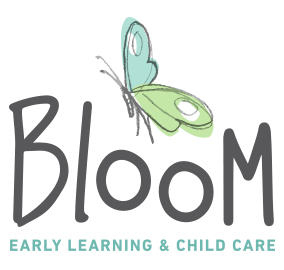
Are you searching for new ways to help your preschool child build life skills and support the family? Perhaps you haven’t considered assigning your child chores because your child isn’t interested or it would take less time to perform these tasks yourself. Research from a well-known 75-year Harvard study examined the childhood psychosocial variables and biological processes that predicted health and well-being later in life.1 The research revealed that children who performed more chores at a younger age were more likely to experience well-being later in life. Researchers concluded that while children may not wish to complete chores, the family can motivate them by planning ways to make chores fun.
 “The importance of chores for kids is two-fold,” said Deborah Ottman, director, University of Minnesota Online Professional Development/Social Emotional Program and Bloom Board member. “First, the child learns to contribute to the well-being of the family. Second, chores help children learn important life skills needed to do well in school and as adults.
“The importance of chores for kids is two-fold,” said Deborah Ottman, director, University of Minnesota Online Professional Development/Social Emotional Program and Bloom Board member. “First, the child learns to contribute to the well-being of the family. Second, chores help children learn important life skills needed to do well in school and as adults.
“Chores and child development are key,” added Andrea Sorensen, director of Communications & Marketing/Talent Acquisition at Urban Air Adventures—Plymouth and Bloom Board member. “But how to get kids to do chores when they are reluctant to complete them can be a challenge.”
To make it seem less like work and incorporate playful aspects, chores could involve speed competition, taking turns, or singing a favorite song. Or kids could assume superhero characters with powers that relate, for example, to cleaning or yard work.
“Consider creating competitions to excite kids to perform chores,” Sorensen added. “For example, each Saturday morning our family would choose a chore from a whiteboard labeled “House Needs.” Whoever woke up first could sign up for the chore of their choice. It was ‘first come, first served’ for everyone else.”
It’s key that adults work alongside young children: It’s as important to support the children’s learning itself, as it is to help them acquire the sequencing and execution of the skills needed to complete the parts of a task. Acknowledge what tasks your little one is doing correctly. Don’t be dismayed if your child is not perfect and has trouble completing tasks. Know that the activity is about trying to learn life skills through chores. 
Tips for Parents and Families
- Be specific and clear in your request. For example, ask a child to get a certain book from a bookcase. After you have read to the child, you can request the child to return the book to the same place. As a child is learning the sequence of steps in a chore, consider breaking it down and narrating each step as they complete it. Be specific in your praise for what the child has done or tried to do. Rather than saying a general “Good job!” try “You did a good job putting a napkin at everyone’s plate!”
- Build chores into the natural routines of the day and maintain the routine. Kids do better with consistent times and schedules for activities. Routines are a natural place for children to have regularly occurring chores. Is it time to get ready for bed? Families might have a child pick up toys as the first step in their bedtime routine. Making toy pick-up a consistent part of this routine offers children predictability. They know what the chore entails how long the chore will take – and what is coming after the toys are put away.
- Find chores that match a child’s temperament and interests. Responsibilities for preschoolers must also be age-appropriate. When introducing chores to very young children, capitalize on their natural desire to help and mimic. Perhaps your child might want to fold laundry? Matching socks might be an appropriate task for children who enjoy identifying patterns. Does your child show interest in cooking? That child might enjoy pouring water into a muffin mix and stirring the ingredients. And remember – the young child’s effort is what counts.
- Use a reward system that matches your child’s developmental stage and motivational needs. Some kids will have intrinsic motivation, while others may need additional motivators to complete tasks. Older kids understand that bigger rewards can come by accruing and saving credit in exchange for completing a chore. For children ages 4 to kindergarten, use a chart with stickers to mark progress. Once children reach an agreed-upon amount, they earn a reward. The reward shouldn’t be elaborate or expensive – nor does it need to be material. We suggest rewarding children by doing something special together. Children under the age of four have not yet cognitively developed enough to understand delayed gratification, so a chart showing progression might not be effective for them. But, doing the chore first followed by an enjoyable activity is a good option.
- Offer children time and encouragement. Encourage your child to learn the sequence and actions for completing a chore. Children need to engage in tasks multiple times to learn how to perform them correctly. Your child, like the rest of us, needs the chance to practice and make mistakes when acquiring a new skill. Remember to support children as they perform tasks. Acknowledge their successes, and offer praise when they complete them. When children have difficulty finishing a task, help them understand that they are making progress toward mastering the skills required.
- Avoid offering payment for doing chores. We adults don’t get paid for keeping up our households and carrying out the daily tasks that contribute to our family’s wellbeing. Our children should not, either. By helping our kids to learn a task and eventually do it on their own – even when they don’t want to – we promote their acquiring important skills critical to their academic success – perseverance, self-efficacy, and completing an assignment. These same skills will serve them well in adulthood.
Resources and Sources
American Academy of Child & Adolescent Psychiatry: Several benefits of children doing chores, and routine tasks such as laundry or vacuuming.
Pathways: Even 2-year-olds can start with simple tasks.
Pathways: View what chores might be right for your child.
self-sufficient KIDS: Check out a list of age-appropriate chores for kids.
For Information about Bloom activities, visit us here or for additional questions or comments, contact Bloom.

Irene Connors donates her time grant writing and blogging for social service agencies. She served as an information officer/communications specialist for most of her career at the Minnesota Department of Employment and Economic Development (DEED). In addition, she had a role in the Workforce Development unit in which she assisted job seekers find meaningful careers. Prior to joining DEED, she was employed at Allina Health as a communications coordinator and as an economist at the U.S. Department of Labor in Washington, D.C. She earned a bachelor’s degree from the University of Virginia and completed graduate work in professional communication at the University of St. Thomas (Twin Cities).







